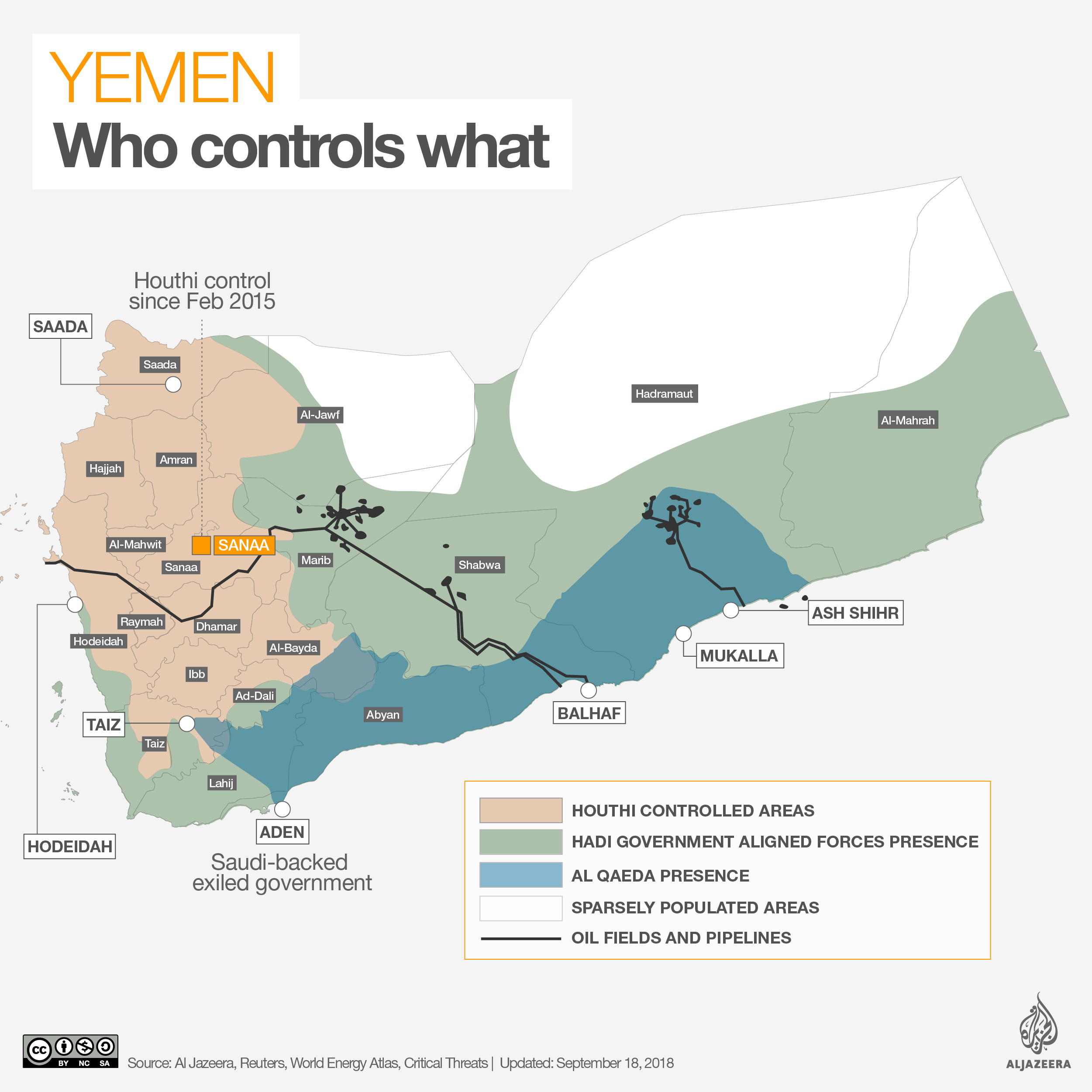Saudi-UAE alliance to open humanitarian corridors in Yemen
Alliance says corridors will help delivery of life-saving aid to starving Yemenis in Hodeidah and the capital Sanaa.

The Saudi-UAE military alliance fighting in Yemen says it will open humanitarian corridors between two rebel-held areas, the Red Sea city of Hodeidah and the capital Sanaa, to allow life-saving aid to be delivered to millions of starving Yemenis.
Turki Al Maliki, a spokesman for the military alliance, said on Monday that “the coalition is working with [UN humanitarian agency] OCHA to establish safe humanitarian corridors to help in the delivery of aid.”
Keep reading
list of 4 itemsUS sanctions shipping firm accused of links to Iran, Yemen’s Houthis
Vessel struck in Red Sea as Houthis promise attacks on more shipping lanes
What we know about deadly Houthi attack on cargo ship
There was no immediate reaction from the UN.
|
|
Al Jazeera’s Andrew Simmons, reporting from neighbouring Djibouti, said Monday’s announcement “came following a chorus of protests, indignation and impassioned pleas for something to be done.
“The details still haven’t been released but there is already some sort of agreement between the alliance and the UN to get supplies through, but they’re having difficulties because the main roads between the two cities are the site of fighting.
“The roads are impassable in places. And add to that, the grain mills [at Hodeidah port], which store food, are inactive because of the fighting.
“The question now is, how will the Houthis engage in this agreement, how will it be observed on the ground and will it effective? Aid agencies have been unanimous in saying that a famine is coming, with Mark Lowcock, the UN humanitarian affairs chief, warning when the famine strikes it will be too late.”
‘Approaching a tipping point’
The war in Yemen has unleashed the world’s most urgent humanitarian crisis, with 22 million people dependent on aid.
Food prices have increased by an average of 68 percent since 2015, while the Yemeni riyal has depreciated by nearly 180 percent.
In recent weeks, Yemeni forces, backed by a Saudi-UAE military alliance, have advanced on Hodeidah city, the main gateway for imports of relief supplies and commercial goods into the country – in an operation to retake the city and its strategic from Houthi rebels.
The UN has spent the past few weeks scrambling to mediate between the warring sides, with Martin Griffiths, the UN special envoy for Yemen, holding separate, face-to-face talks with the Yemeni government and Houthi rebels.
Aid agencies have warned that the offensive on Hodeidah could have devastating consequences for the civilian population of the entire country, which is already on the brink of famine.
“We are losing the fight against famine,” Mark Lowcock, the UN’s humanitarian chief, told the UN Security Council on Friday. “We may now be approaching a tipping point, beyond which it will be impossible to prevent massive loss of life.”
“We are already seeing pockets of famine-like conditions, including cases where people are eating leaves.”
Yemen’s civil war started in 2014 when the Houthis advanced south from their stronghold of Saada and captured large parts of northern Yemen, including the capital Sanaa.
The conflict escalated into a regional proxy war in 2015, when Saudi Arabia and the UAE led a coalition that launched air raids on rebel positions, in an attempt to reinstate the internationally recognised government of President Abu-Rabbu Mansour Hadi.
With logistical support from the US, the Saudi-UAE alliance has carried out more than 16,000 raids on Houthi-held areas in an attempt to reverse their gains.
These attacks have struck weddings and hospitals as well as water and electricity plants, killing and wounding thousands.
According to the UN, at least 10,000 people have been killed since the Saudi-Emirati-led coalition intervened in Yemen in 2015.
The death toll, however, has not been updated in years and is likely to be much higher.
